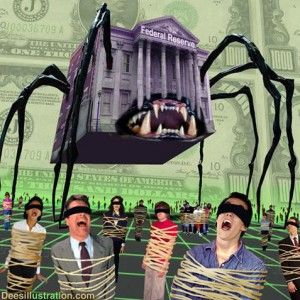Wednesday

Understanding The Federal Reserve
A month ago, I said I was going to tackle Allan Metzer's A History of the Federal Reserve. Unfortunately, it broke my tackle. The book is difficult, largely because it uses a lot of professional terminology. I'm still glancing through a page here and there, but for the most part, I've given up. But I haven't given up on understanding that beast, the Federal Reserve, and yesterday, I listened to a great podcast from George Mason University's Econtalk: Selgin on the Fed. It's highly, highly recommended, if you take any interest in lender of last resort, too big to fail, the great moderation, and other issues that gained notice in the recent economic upheaval. It's one of those podcasts that is packed with significant revelations, like Selgin's observation that the great Victorian economic journalist, Walter Bagehot, was not really in favor of a lender of last resort. To me, this is huge. I receive (and read irregularly) The Economist, Forbes, and Fortune. In addition, I read all sorts of other sources of economic analysis and news. I can't tell you how many times I've heard writers in these various publications mention that even the great Bagehot believed in a lender of last resort, and therefore the Fed's recent actions in this area are at least partially justified. Selgin demolishes all such theories in about five minutes. Consider: "Bagehot was making a recommendation for the English banking system, but it's important to note that in doing so he explicitly said the English banking system was deeply structurally flawed because it had a central bank. If it hadn't been for this central bank which was capable of mismanaging money in a way that could ultimately trigger external drains of gold or specie, there wouldn't have been any need for advising it to act in a more publically responsible manner. Bagehot expressly points to the relatively free Scottish system of the time, not as free as it had been before Peel's Act of 1845, as an ideal system and makes it clear that in that kind of decentralized monetary system you don't need a lender of last resort. A lender of last resort according to Bagehot if you are stuck with a central bank is a central bank that lends freely at high rates of interest, but only to solvent firms, during times of crisis." Emphasis added. Excerpt from Lombard Street.
